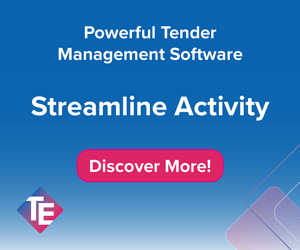Every proposal professional has been there: The clock is ticking, the deadline is looming, and your subject matter experts (SMEs) are nowhere to be found. Have you ever found yourself getting ghosted by SMEs? Are you having a tough time helping your SMEs understand what you need from them and why? What’s a proposal team to do if your SME relationships leave something to be desired?
If your team is anything like ours, you’ve probably found that some SMEs are less than accessible and enthusiastic. This is a big problem, because whether they’re contributing to your content library or providing information for specific RFPs, SMEs play a critical role in the process. They provide information and insights needed to develop compelling, persuasive proposals. Simply put, your team’s SME relationships can make or break your proposals.
The struggle is real, and our team was no exception. Several years ago, we started a nontraditional approach to solving the issue of SME engagement, and we’re seeing incredible results. Here are two tips for cracking the SME engagement code.
Tip #1: Use Interns to Help Pave the Way
Improving SME relationships starts with understanding SME pain points. We wanted to hear the good, the bad, and the ugly. We realized that the best approach to uncovering what was working and what wasn’t was by interviewing our SMEs; however, we were concerned about whether they would feel comfortable enough to be fully candid and forthcoming.
Our solution: interns. There’s something disarming about speaking with a young, fresh-faced intern who’s there to learn and soak up information. Think of your interns as the perfect private investigators. Have them help collect intel from your SMEs. Here’s how we did it:
- Have your interns collect SME insights: The interns’ mission was simple. Interview top SMEs about what’s working and what’s not. What was uncovered was eye-opening: Our SMEs felt overused and underappreciated. Their priorities and sense of urgency didn’t align with ours, and they lacked a basic understanding of how the information they provided was used. No wonder they were dodging our calls.
- Use the findings to build an action plan: We used the interview findings to create an action plan, starting with education. We did one-on-one trainings and broader webinar presentations to help the SMEs understand what we need from them and why it matters. We also started an SME recognition program to reward, educate, and motivate, including “SME of the Month” articles on our company’s intranet. This program has allowed us to reach a broader audience, while giving folks bragging rights.
SMEs provide information and insights needed to develop compelling, persuasive proposals. … your team’s SME relationships can make or break your proposals.
Tip #2: Move Top Proposal Talent Into the SME Community
Another creative strategy we employed with great success was to move top talent from our proposal team into key SME roles. There’s no better proposal SME than a former proposal manager.
- Benefits of proposal-managers-turned-SMEs: Over the last few years, we moved proposal managers into new roles in marketing, project management, product development, and other business segments. These alumni have helped shift the culture by advocating for the mission of proposals in their new roles.Where our team was left in the dark in the past, our proposal-managers-turned-proposal-SMEs make sure to keep us informed about key projects and initiatives happening in their business areas. They’re our best allies when we’re having trouble tracking down data or finding the right company contacts.
- A self-serving investment: Although your heart might skip a beat at the idea of losing a great proposal manager, it’s a win-win-win for your team, the company, and the employee. Moving proposal managers into new roles can be a great investment in the long term. We designed our program so that after two to three years, proposal alumni can rotate back, bringing with them valuable knowledge, insights, and connections.
If your team is struggling with SME engagement, give one of these creative strategies a try. As proposal professionals, we’re naturally scrappy and resourceful, so put those creative skills to use and try an unconventional approach to shifting the SME culture in your company.
Alison Coon is director of proposal and presentation solutions, and Karen Kosloff is senior presentation lead, both at Guardian Life, a New York City-based insurance and wealth management firm. They can be reached at alison_coon@glic.com and karen_kosloff@glic.com, respectively.



Join the Conversation